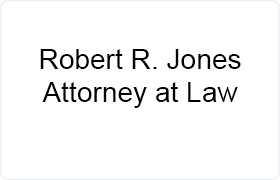Sweeny Misdemeanor Lawyer, Texas
Sponsored Law Firm
-
 x
x

Click For More Info:
-
Robert R. Jones Attorney at Law
3526 E. FM 528 Suite 204 Friendswood, TX 77546» view mapCriminal Defense Expert Representation for Reasonable Rates
If you need representation, call me 24/7.
800-883-8760
Not enough matches for Sweeny Misdemeanor lawyer.
Below are all Sweeny Criminal lawyers.
Jeffrey Bendit
Divorce & Family Law, Traffic, Criminal, Wills & Probate, Divorce
Status: In Good Standing Licensed: 46 Years
Richard C. Stevenson
Commercial Real Estate, Family Law, Criminal, Administrative Law
Status: In Good Standing Licensed: 51 Years
 Robert Jones Friendswood, TX
Robert Jones Friendswood, TX AboutRobert R. Jones Attorney at Law
AboutRobert R. Jones Attorney at Law Practice AreasSpecializations
Practice AreasSpecializations
